
2023 North Carolina Microbiome Symposium
The 2023 NCBC Microbiome Symposium will take place in person on Wednesday, May 24, at the North Carolina Biotechnology Center. We have an exciting day of presentations planned, which include keynote speaker Dr. Ken Blount (chief scientific officer at Rebiotix and vice president of microbiome research at Ferring) as well as poster sessions, networking time, and lunch.
This will be an excellent opportunity for researchers to connect with fellow academia and industry scientists. All attendees must register and purchase a ticket using the instructions below.
Poster Session Guidelines:
Trainee poster submissions will be accepted on a first-come, first-serve basis. The best poster presented by a student, post-doc, or fellow will receive a prize. Anyone wishing to participate in the poster session must submit a title and abstract to Hannah Cole by Friday, May 12.
Posters must be microbiome-related and no larger than 4 feet by 4 feet. Mounting materials will be provided. Please contact us directly with any questions about eligibility.
Agenda
8:30 a.m. - Registration and Coffee/Breakfast
8:50 a.m. - Welcome: NC Microbiome Consortium Organizing Committee
9:00 a.m. - Session 1: Microbiome Science in Human Health
"Gut Resistome Dynamics in Severely Immunocompromised Patients" - Tessa Andermann, Assistant Professor of Medicine, Division of Infectious Diseases, University of North Carolina at Chapel Hill
"Reengineering of the bile acid landscape in the gut to prevent Clostridioides difficile infection" - Casey Theriot, Associate Professor of Infectious Disease, College of Veterinary Medicine, North Carolina State University
"The female urinary microbiome - implications for health and disease" - Nazema Siddiqui, Associate Professor of Obstetrics and Gynecology, Duke University School ofMedicine
10:15 a.m. - Refreshment Break / Posters and Networking
10:30 a.m. - Session 2: Microbiome Science in Agriculture and Environmental Health
"Importance of eco-evo feedbacks for understanding microbial responses to environmental change" - Mallory Choudoir, Assistant Professor and Extension Specialist in Plant and Microbial Biology, North Carolina State University
“Steps for assessing xenobiotic impacts on the gastrointestinal microbiome” - Vicki Sutherland, Program Leader, Systems Toxicology Branch, Division of Translational Toxicology and National Toxicology Program, National Institute of Environmental Health Sciences
""Precision microbiome engineering and the built environment" - Claudia Gunsch, Professor of Civil and Environmental Engineering, Pratt School of Engineering, Duke University
11:45 a.m. - Lunch, Poster Session, and Networking
1:15 p.m. - Session 3: Regulation of Microbiome-Based Products
"Innovation, Entrepreneurship, and Commercialization of Early Stage Research" - Kultarin Chohan, Executive Director, Office of Research Commercialization, North Carolina State University
"Regulatory Considerations for Microbiome Based Therapeutics" - Paul Carlson, Principal Investigator, Laboratory of Mucosal Pathogens and Cellular Immunology, Division of Bacterial, Parasitic, and Allergenic Products, Office of Vaccines Research and Review, FDA
"The Relevance of Regulatory Strategy in Commercialization of Microbiome Products" - Amy Smith, Global Regulatory Strategy Lead, Health Dietary Supplements, International Flavors and Fragrances (IFF)
2:30 p.m. - Break
2:45 p.m. - Session 4: Industry Research in the Triangle
"Deciphering and targeting the virome to enable the success of bacterial therapies" - Alexandra Sakatos, CEO Ancilia Biosciences
"Approaches to microbiome research: An animal health perspective" - Mark Koenigsknecht, Senior Scientist in Animal Health and Nutrition, Novozymes
"Precision Delivery of Probiotics to Enhance Nutrition" - Aaron Anselmo, CEO VitaKey
4:00 p.m. - Keynote Speaker
"The End of the Beginning? Evolution of the Microbiota-based Live Biotherapeutics Industry." - Ken Blount, CSO Rebiotix, A Ferring Company, VP Microbiome Research, Ferring
5:00 p.m. - Closing and adjourn
Thank You to Our Sponsors
Duke Microbiome Center
NC State Microbiomes & Complex Microbial Communities Cluster
PreMiEr - NSF ERC for Precision Microbiome Engineering
UNC-Capel Hill Office of Research Development
Speaker Biographies
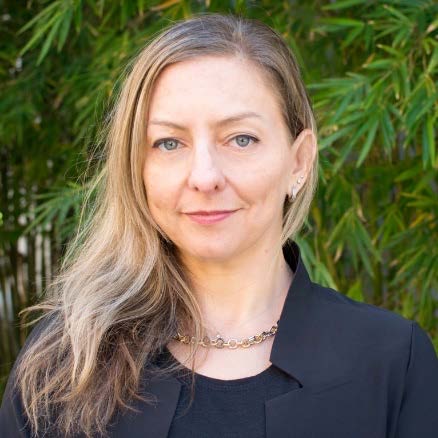
Tessa Andermann, MD, MPH
Assistant Professor of Medicine
Division of Infectious Diseases
University of North Carolina at Chapel Hill
Title: “Gut Resistome Dynamics in Severely Immunocompromised Patients”
Research interests:
The Andermann Lab investigates the use of metagenomic sequencing using short-read and long-read sequencing
modalities to approximate microbial dynamics such as antimicrobial horizontal gene transfer events in the gut under antibiotic and chemo/immunotherapy pressure.
Our research efforts are threefold:
1. To investigate how the dynamics of antimicrobial resistance genes within the gut impact infectious risk in immunocompromised patients.
2. To understand host immune-microbial interactions that underlie immunotherapy efficacy and toxicity in patients with hematologic malignancies.
3. To develop a comprehensive biorepository to integrate microbiome research across the various disciplines within the UNC Lineberger Cancer Center.
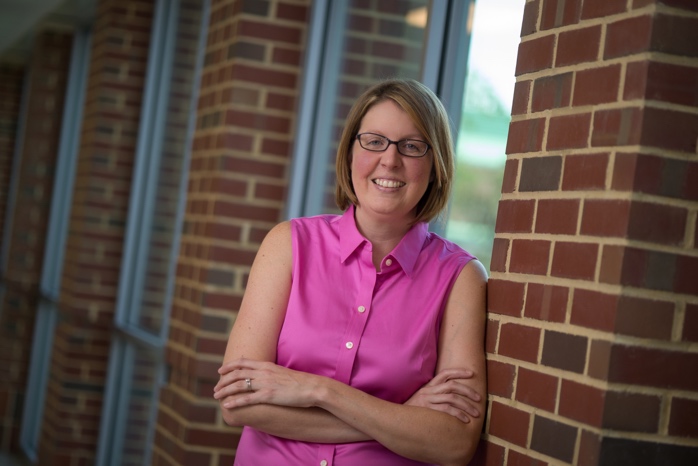
Casey M. Theriot, PhD
College of Veterinary Medicine
NC State University
Title: “Reengineering of the bile acid landscape in the gut to prevent Clostridioides difficile infection”
Research interests:
Dr. Theriot received a BES in Environmental Science from the University of Georgia, and her PhD in Microbiology from
North Carolina State University. She has also worked at the Centers for Disease Control and Prevention (CDC) as a Microbiologist. She completed a postdoctoral fellowship and independent research position with Dr. Vincent Young at the University of Michigan Medical School, where she focused on defining the gastrointestinal tract microbiome and metabolome during resistance and susceptibility to Clostridioides difficile colonization and infection in a mouse model.
Dr. Theriot’s current research focuses on how gut microbial derived secondary bile acids inhibit the C. difficile life cycle using in vitro and in vivo models. She is also working on manipulating the gut microbiota to rationally alter the composition of the bile acid pool in the gut, which has the potential to improve preventative and therapeutic approaches against many human diseases. The goal of her work is to design targeted bacterial approaches to prevent and treat gastrointestinal diseases – improving clinical outcomes.
Dr. Theriot is a member of the Comparative Medicine Institute at NCSU and the Center for Gastrointestinal Biology and Disease at UNC. She has received multiple pilot and NIH research awards for her research on C. difficile including a Mentored Research Scientist
Development Award in Metabolomics (K01), and the Maximizing Investigators' Research Award (MIRA) (R35) from the NIGMS.

Nazema Siddiqui, MD, MHSc
Associate Professor
Division of Urogynecology & Reconstructive Pelvic Surgery
Department of Obstetrics & Gynecology
Duke University School of Medicine
Title: “The female urinary microbiome - implications for health and disease”
Research interests:
My research focuses on the translational biology of urologic disorders that are common in postmenopausal women, such as overactive bladder (OAB), urgency urinary incontinence (UUI), and recurrent urinary tract infections (UTIs). For these issues, the urinary microbiome has been implicated as a potential causative or exacerbating factor. Therefore, our research group has been characterizing age-related changes in the urinary microbiome and working to understand the associations that are seen between
microbiota and urinary symptom disorders. We have also developed expertise in the technical challenges of analysis of microbes in the urinary bladder, which is typically a low biomass niche in the human body.
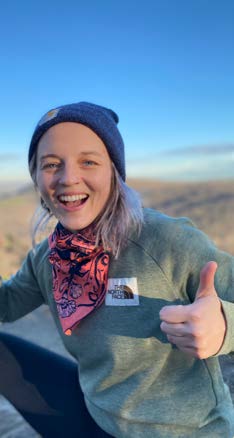
Mallory Choudoir, PhD
Assistant Professor & Soil Microbiome Extension Specialist
North Carolina State University
Title: “Important of eco-evo feedback for understanding microbial responses to environmental change”
Research interests:
My research focuses on the ecological and evolutionary processes driving beneficial microbial functions in North Carolina agroecosystems. The goal of my program is to translate microbial ecology and microbiome science to NC agriculture. We leverage molecular sequencing approaches, cultivation-dependent, and cultivation-independent methods to inform decisions about land management, cropping systems, and inputs to maximize crop productivity and environmental health. We aim to develop microbial solutions supporting sustainable and climate-smart agriculture practices.
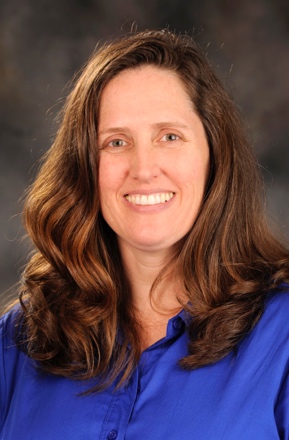
Vicki Sutherland, PhD
Program Leader
Systems Toxicology Branch
Division of Translational Toxicology and National Toxicology Program, National Institute of Environmental Health Sciences (NIEHS)
Title: “Steps for assessing xenobiotic impacts on the gastrointestinal microbiome”
Research interests:
I’d like to understand if environmental or dietary exposures to xenobiotics adversely impact the microbiome and lead to short-term toxicological insults or longer-term disease states. Can we determine what a healthy, versus unhealthy microbiome is and if exposure and timing of exposure lead to recoverable impacts or lasting changes in organ systems or the body as a whole? Can we elucidate what those changes are as well as what the role of the microbiome is in our overall health? And can we find biomarkers that help us accurately assess impacts or are the microbiomes we host too variable to utilize in standard toxicological assessments?
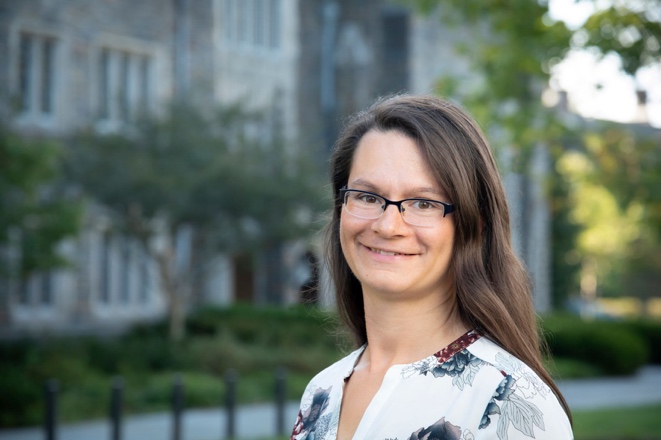
Claudia Gunsch, PhD
Professor of Civil and Environmental Engineering,
Duke University and PreMiEr ERC Director
Title: “Precision Microbiome Engineering and the Built Environment”
Research interests:
Dr. Gunsch’s research bridges environmental engineering and molecular biotechnology. Current research foci include investigating the ecological impacts of emerging contaminants on environmental microbiomes, developing microbiome engineering approaches for bioremediation, studying microbial evolution following exposure to anthropogenic contaminants and exploring the intersection of the built environment with human health.
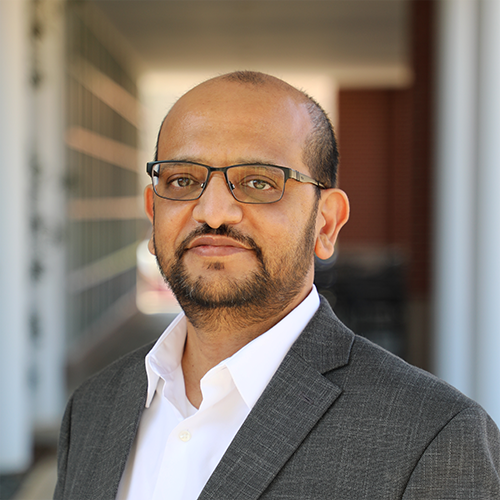
Kultaran Chohan, PhD, LLM, CLP
Executive Director, Office of Research Commercialization at NC State University.
Title: "Innovation, Entrepreneurship, and Commercialization of Early-Stage Research"
Research interests:
In this day and age, universities are playing a very important role in discovering cutting-edge technologies/inventions. In the last two decades, academic research in the U.S. has resulted in the generation of 480,000+ new inventions, 117,000+ U.S.-issued patents, 15,000+ new startup companies, 200+ drugs and vaccines, and has supported over 5.9 million jobs. Transferring these discoveries to the private sector where they can be further developed and transformed into products/services which are made available in the
marketplace for society's benefit can take quite a bit of time and effort. As the Executive Director of the Office of Research Commercialization at NC State, Kultaran leads a team of Licensing and New Venture professionals in their role to help facilitate the commercialization of NC State's entire research discovery/IP portfolio. Kultaran has extensive experience and expertise in the cradle-to-grave approach for research commercialization including commercial evaluation of early-stage discoveries, development of IP strategy/protection, and developing commercialization/licensing strategies for various types of IP assets.

Paul Carson, Principal Investigator
Division of Bacterial, Allergenic, and Parasitic Products,
Office of Vaccines Regulation and Review,
Center for Biologics Evaluation and Research,
Food and Drug Administration
Title: “Regulatory Considerations for Microbiome Based Therapeutics”
Research interests:
I have multiple roles at FDA related to the microbiome. First, I run a research laboratory that is focused on C. difficile pathogenesis, various aspects of Fecal Transplants, and bacteriophage therapeutics against Enterococcus. Second, I am responsible for the Chemistry, Manufacturing, and Controls (CMC) review of INDs and BLAs related to the microbiome, including Fecal Microbiota Transplantation (FMT) based products and Live Biotherapeutic Products (LBPs). I also serve on both the FDA Microbiome Working Group and the Joint Agency Microbiome Working Group.

Amy B. Smith, PhD
Director, Global Regulatory Strategy
IFF Health
Title: “The Relevance of Regulatory Strategy in Commercialization of Microbiome Products”
Research interests:
As our research and understanding of the microbiome expands, the complexity of the breadth of microbes in and on our bodies is
increasingly apparent. The association of certain microbes with specific health outcomes is established for a number of microbial species that are not present in our food supply, which ventures into the next-generation world of probiotics. The resulting regulatory
environment becomes exceedingly complex and requires a deliberate strategy to comply with US and global food and dietary supplement standards to ultimately commercialize a compliant product. Let’s explore criteria for establishing appropriate safety and regulatory compliance of next-generation, novel microbes.
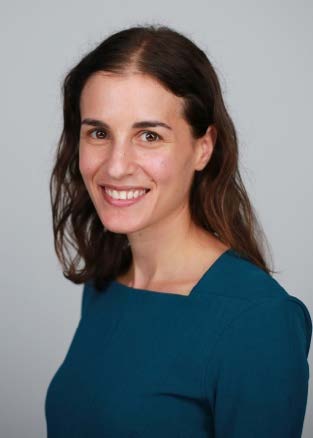
Alexandra Sakatos, PhD
Co-founder & CEO, Ancilia Biosciences
Title: “Deciphering and targeting the virome to enable the success of bacterial therapies”
Research interests:
Microbiome research has primarily focused on the bacterial components of the microbiome, yet recent studies demonstrate that
at least half of the microbiome is made up of viruses that infect bacteria known as bacteriophages. In their infectious state, these phages can selectively infect and lyse their target bacteria, driving significant alterations in bacterial ecosystems. Phages therefore have the potential to 1) Directly prevent the colonization & efficacy of bacterial therapies by attacking exogenously added strains and 2) Drive changes in the composition of bacterial populations that underlie disease. Our work is focused on identifying and characterizing these viral populations, and then ultimately leveraging CRISPR to develop a novel class of bacterial therapies with immunity against infectious viruses.
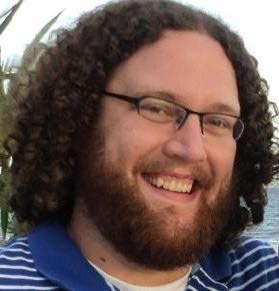
Mark Koenigsknecht, PhD
Senior Scientist at Novozymes
Title: “Approaches to microbiome research: An animal health perspective”
Research interests:
My interest in the microbiome has evolved over the course of my career, from controlled mouse studies to large industrial
farm studies. I work at Novozymes where I specialize in probiotics for livestock health. With this talk I hope to give the audience a better understanding of the large-scale studies needed to study probiotics in livestock. I will discuss the benefits we can obtain from these studies and some of the gaps we still have in probiotic microbiome research.
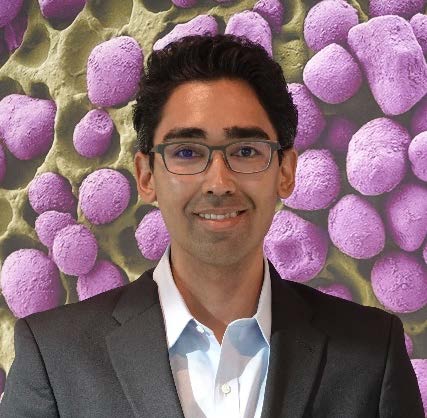
Aaron C. Anselmo, PhD
Chief Scientific Officer VitaKey Inc.
Title: “Precision Delivery of Probiotics to Enhance”
Research interests:
Probiotics that are routinely available to consumers in over-the-counter supplements or in food products are typically provided in only a few dosage forms (e.g., capsules for supplements, yogurt for foods). Implementation of new products and dosage forms for probiotics relies on addressing harsh environmental conditions (e.g., ambient temperature, high humidity) that decrease probiotic viability during shelf-life storage. Furthermore, the overwhelming majority of current dosage forms do not provide approaches to control delivery after ingestion and cannot ensure (1) probiotic survival through the harsh acidic conditions of the stomach, (2) metabolic activity of probiotics during gastrointestinal transit, and (3) delivery of viable probiotics to the target site (e.g., intestines). Finally, each probiotic strain is unique in both its sensitivities to environmental conditions and in its intended function within the host (e.g., colonization, metabolite secretion, immune system boosting/activating) and thus new approaches must consider the unique sensitivities and characteristics of each individual probiotic. To date, most approaches to solve these challenges have focused on engineering novel strains of probiotics; as such, there is an unmet need for the development and commercialization of advanced delivery systems for probiotics that can be broadly applied across multiple probiotics strains. To this end, VitaKey is developing precision delivery systems for probiotics to ensure viability during probiotic formulation, address stability challenges during storage to ensure probiotic viability throughout shelflife, and control delivery of probiotics after ingestion to ensure that probiotics arrive to the right place in the gastrointestinal tract, at/for the right time, and in the right amount. VitaKey’s precision delivery systems for probiotics will enable the commercialization of the next generation of probiotic supplements and food products geared toward health and wellness. More broadly, VitaKey’s precision delivery systems for probiotics can be applied to applications throughout the whole food chain, including the agriculture industry (e.g., animal feed).
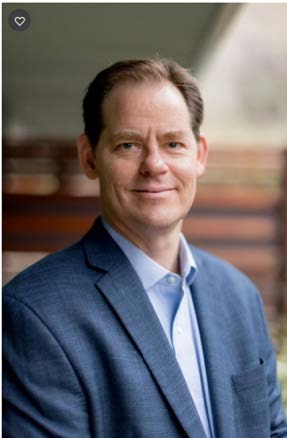
Ken Blount, PhD
Chief Scientific Officer, Rebiotix, A Ferring Company
VP Microbiome Research, Ferring
Title: “The end of the beginning? Evolution of the Microbiota-based Live Biotherapeutics Industry”
Research interests:
Accomplished Chief Scientific Officer with 15+ years of experience leading global scientific discovery and development organizations for well-established pharmaceutical and biotech companies. Proven success in steering and expanding microbiota-based biotherapeutics and small molecules portfolio to drive advancement, approval, and value creation. Instrumental in managing end-to-end therapeutic programs from ideation to strategy to approval. Wellversed in directing an R&D team in discovery and preclinical efforts, formulation and process development, and CMC support of and IND. Experienced and respected corporate R&D and science standard-bearer, including representation at FDA Advisory Committee.
For questions or more information, contact:
Hannah Cole
Program Manager, Science and Technology Development
Science and Technology Development
919-549-8840
| hannah_cole@ncbiotech.org
NCBiotech
15 TW Alexander Drive
RTP, NC 27709
